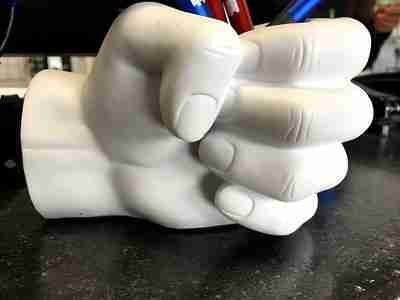A large number of questions asked during the interview are primarily based on the information provided by the candidate in his or her biodata, called Personal Information Questionnaire (PIQ). Information given in the PIQ includes socio-economic and educational background, family details and the extent of participation in extracurricular activities including games, sports, NCC etc. PIQ also contains information on interests, hobbies pursued and positions of responsibility held by the candidate. Possession of above information equips the IO to frame a large number of questions. Therefore, the candidates should be fully prepared to answer all questions related to the information provided in the PIQ. Candidate should ensure that answers given during the interview must match the information provided in it.
Establishing rapport
As soon as the candidate settles down in his chair, the IO normally establishes a good rapport with the candidate by asking him or her certain routine questions for which the candidate need not make much effort to answer. Answering these questions would make the candidate somewhat relaxed. These questions may relate to. Journey to the SSB. Details regarding home-town or place of present stay. Stay at the SSB. Weather and adjustment with new climatic conditions. Routine and evening schedule at the SSB.
Broad based questions

Consequent to building a rapport with the candidate, the IO gradually switches over to ask a number of broad-based questions to assess the OLQs of the candidate. Towards this aim, the IO may probe the following broad areas:
- Questions based to collect details regarding education, training and extracurricular activities of the candidate.
- Questions aimed to assess social adjustment of the candidate with his/her friends and teachers etc.
- Questions to know candidate’s family background and his cooperative nature or responsible attitude.
- Questions aimed to know spare time hobbies, interests, participation in games or sports and achievements in these areas.
- IO may pose one or two synthetic situations to assess planning and organising abilities and stress management of the candidate. These situations are posed to check courage and determination of the candidate.
- Questions to know candidate’s reading habits and assess his general awareness.
- Questions to describe strengths and weaknesses to assess self awareness and what efforts are made by the candidate to improve the weak areas of his or her personality.
- Questions to assess motivational level of the candidate to join Armed Forces.
- Questions to assess candidate’s alternative plans, in case he/she is not selected in the Armed Forces.
Tips on Body Language for effective performance in an interview
It is commonly known that gestures mirror one’s state of mind. Every day, we unconsciously send out many signals through our body. Bodily movements and gestures contribute almost 55 per cent of the total exchange of meaningful conversation between persons. Thus, our body language speaks louder than our words. The way you carry yourself, sit, stand, talk and move your hands or feet convey a lot and reflect your state of mind. Thus, body language is far more eloquent than spoken words. During an interview situation, since the candidate is being observed by the interviewer due to his close proximity, the candidate must adopt suitable and positive body language while facing an interview.
In this context, the following body language tips are noteworthy:
- Pleasant Facial Expression: A smiling face conveys relaxed mind and good stress management.
- Walking and Sitting Posture: Sit and stand erect to display self-confidence.
- Eye Contact: Direct eye contact with the interviewer displays self-confidence and a positive attitude.
- Avoid Fidgeting: Fidgeting and yawning are certainly distracting and must be avoided.
- Head and Hand Movements: Check those excessive and avoidable hand and body movements.
With the above tips on body language in mind, it will make a big difference in terms of flow of information between the candidate and the interviewer. It will also go a long way in creating a positive impact on the interviewer.
— The author was the Chief Instructor-Interviewing Techniques at Defence Institute of Psychological Research, New Delhi


